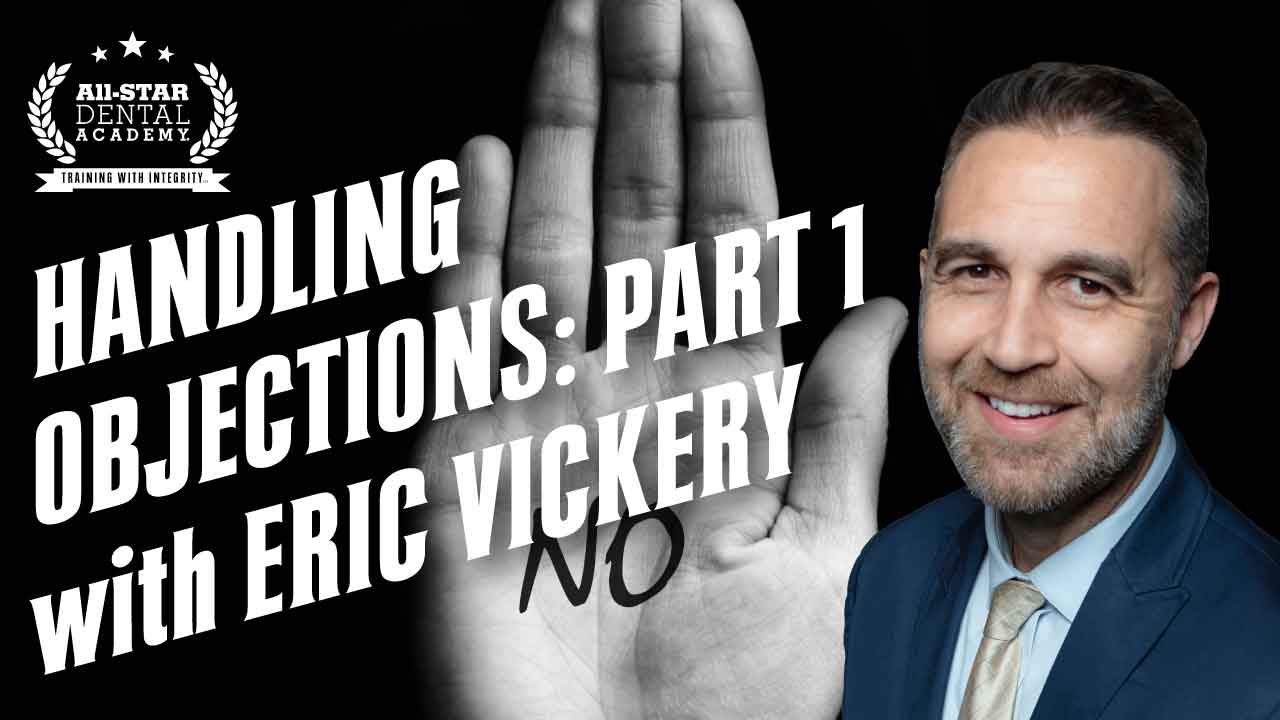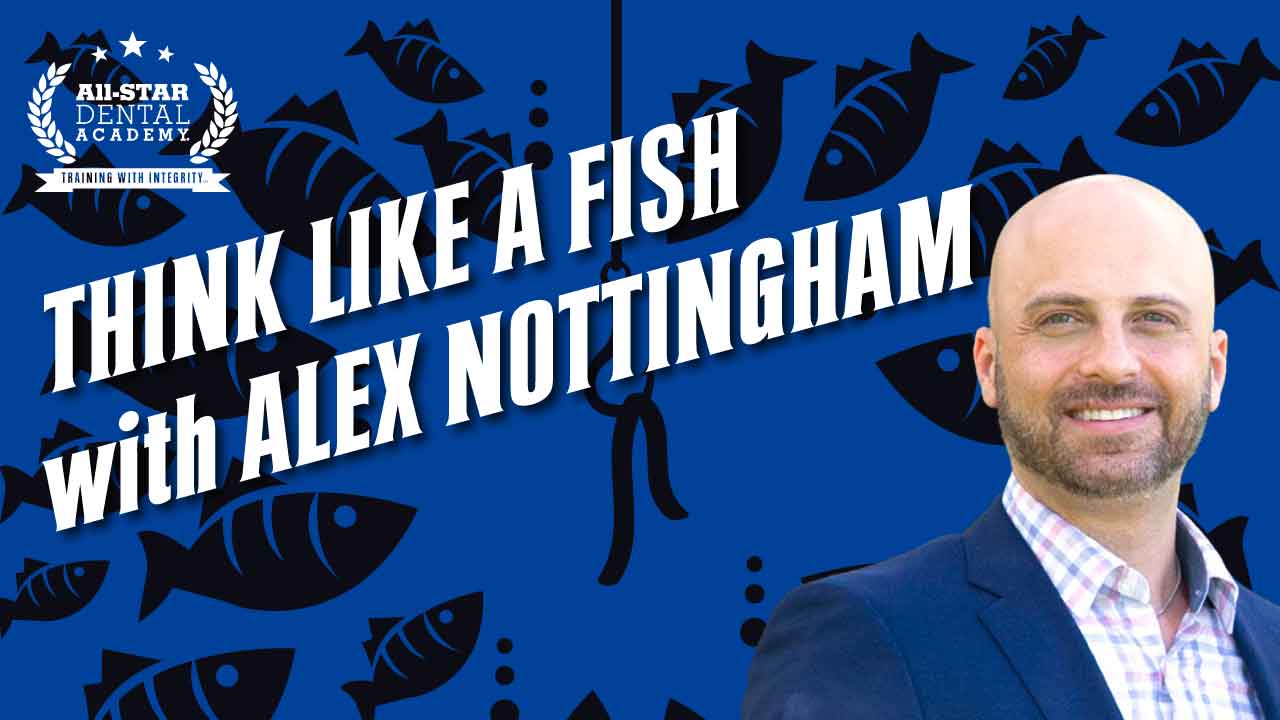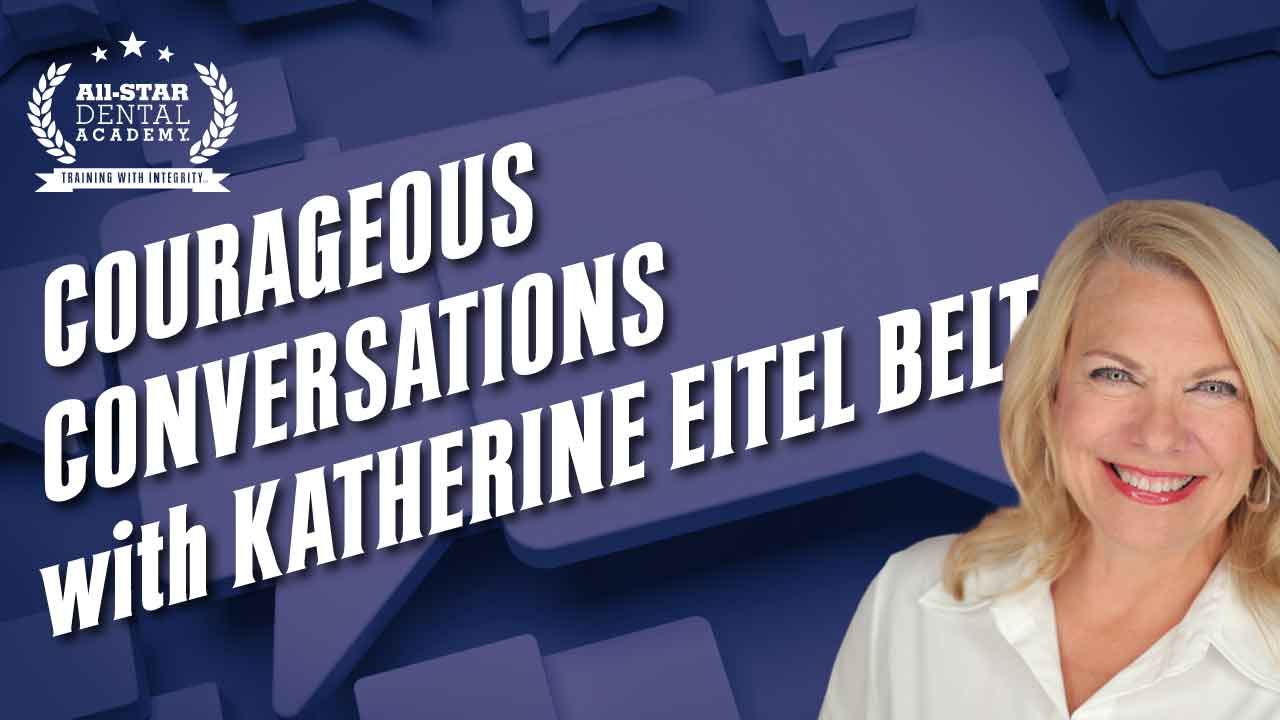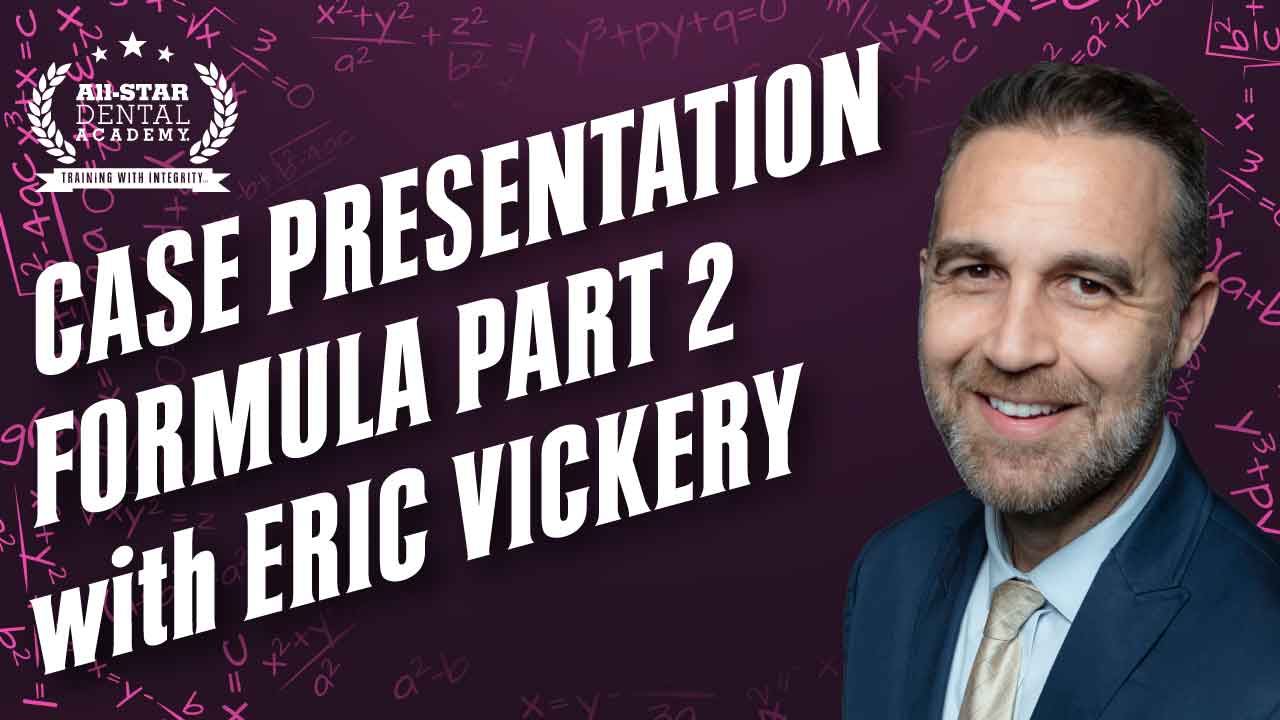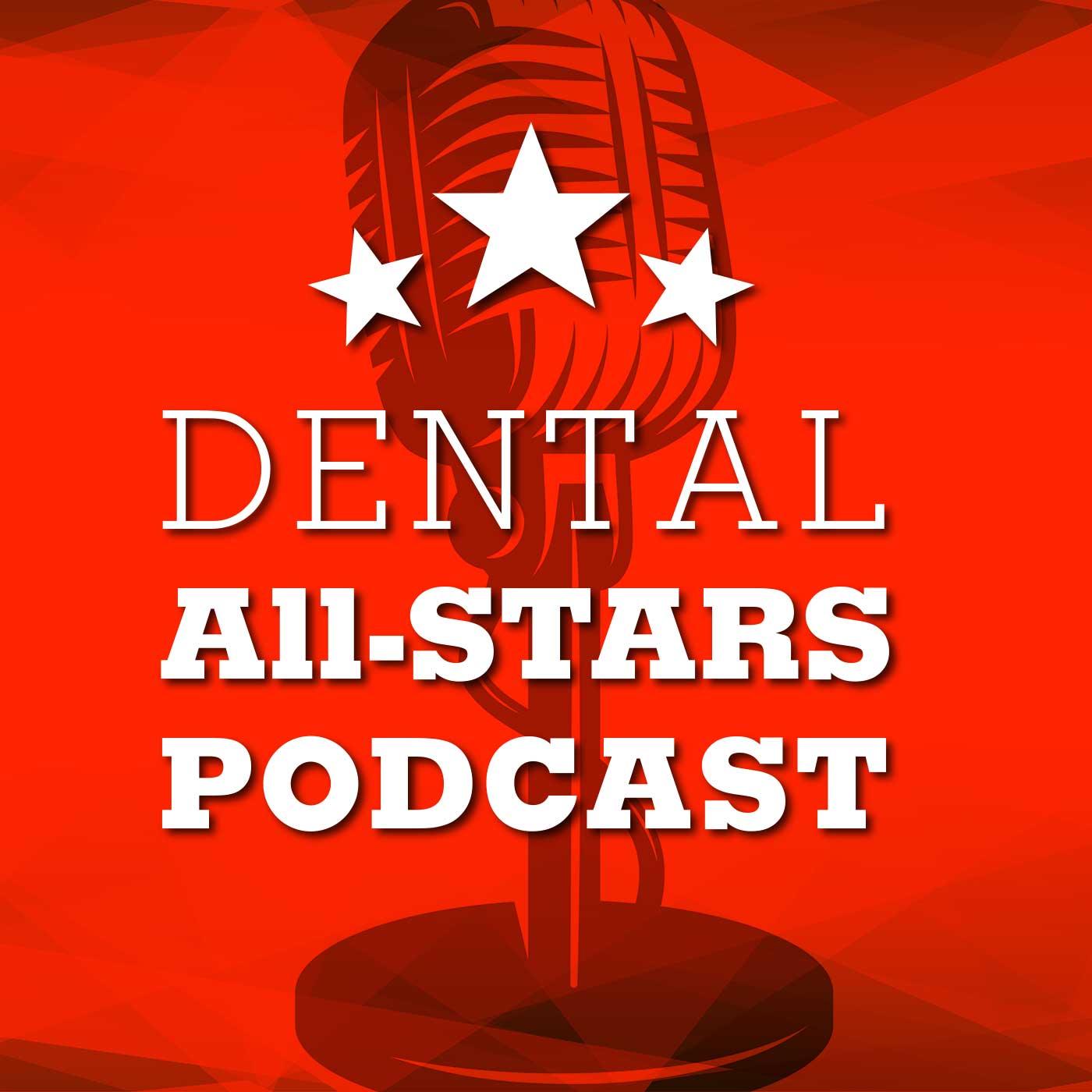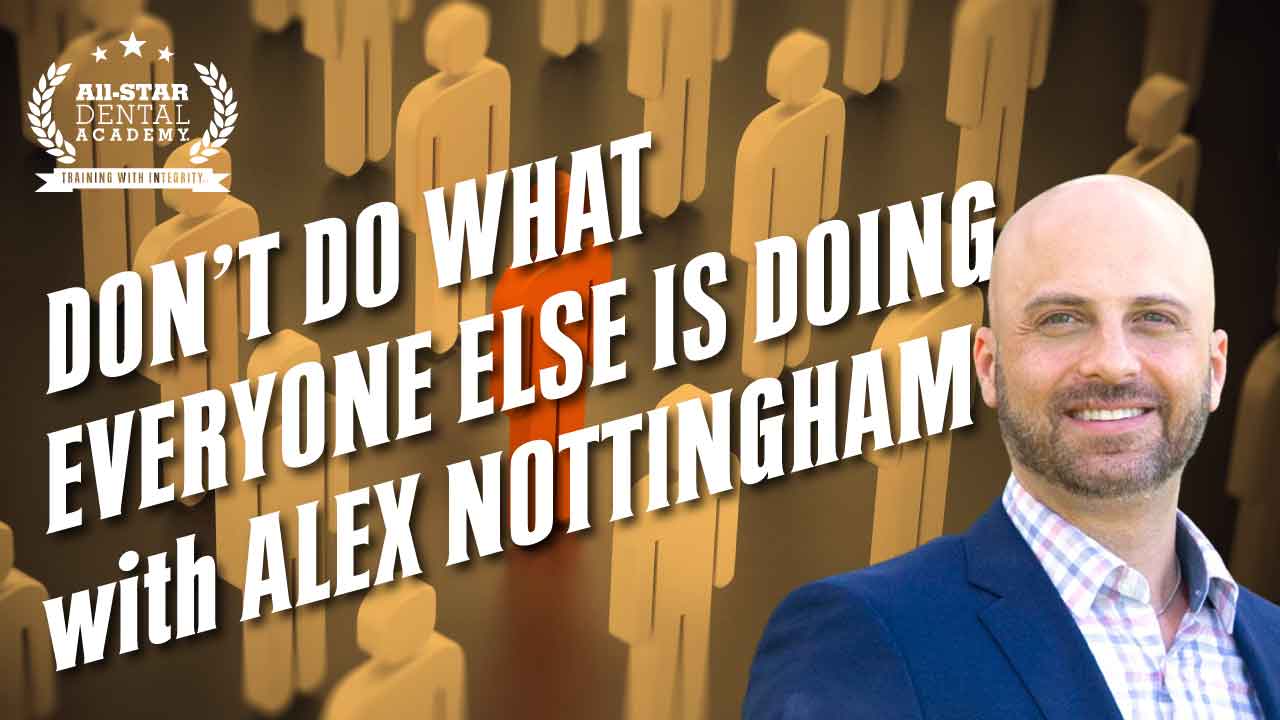Robyn Reis and Alex Nottingham guide you through making job offers when hiring dental team members, ensuring a smooth process.
Resources:
- All-Star’s Hiring Service
- All-Star’s Podcast – Dental Job Description
- Dental Practice Growth Webinar
About Robyn Reis
Robyn began her dental career in 1998 as a marketing and communications director for a large group practice, and instantly fell in love with the world of dentistry. She has spent every waking moment since learning, growing and collaborating with dentists and their teams utilizing her expertise in all aspects of dental practice management, marketing, communications, HR, continuing education, and laboratory sales. Robyn’s personal goals are to make a difference in someone’s life every single day and to give the best of herself to those around her.
About Alex Nottingham JD MBA
Alex is the CEO and Founder of All-Star Dental Academy®. He is a former Tony Robbins top coach and consultant, having worked with companies upwards of $100 million. His passion is to help others create personal wealth and make a positive impact on the people around them. Alex received his Juris Doctor (JD) and Master of Business Administration (MBA) from Florida International University.
Episode Transcript
Transcript performed by A.I. Please excuse the typos.
00:00
This is probably one of the most critical steps in the five-part process of finding and hiring a new dental team member.
00:12
This is Dental All-Stars, where we bring you the best in dentistry on marketing, management, and training. Here’s your host, Alex Nottingham. Everyone and welcome to Dental All-Stars. We’re talking about the five steps to hiring. We have a five-part series. We talked about the job description, the job posting, the interview. Where are we now, Robin? We are now at the step.
00:40
that we call make the offer and do your due diligence. Make the offer and do your due diligence. That could be like a tongue twister. Do your due diligence. That’s a good one. And Robin is our director of hiring. Great to have you back. So tell us about this step. Thanks for having me back, Alex. And yes, this is probably one of the most critical steps in the five part process of finding and hiring.
01:09
a new dental team member. It’s one of the most often overlooked ones too, whereby most people think, well, if I just make a verbal offer, it’s over and they say, yes, it’s over and done with. However, as we’ve talked about in other webinars and other podcasts, the sad statistic in hiring is that…
01:33
85% of resumes do have some kind of embellished, falsified, wrong information. And so it is up to us as dental practice owners, as we create a safe work environment that anybody joining our team, we vet them. We make sure that they say who they are, that we verify previous employment, and that we make sure that…
02:02
Their background is truthful and healthy, for lack of a better term. So when we make a conditional offer to an applicant, what we’re basically saying to them is, we wanna welcome you to our team. This is to confirm our verbal conversation and your verbal acceptance of the position. The conditions of your employment will include verification of
02:31
previous employment and a background check, and even verification of their licensing or a Hep B vaccination, things like that for conditions of employment. So we want to make sure that the person who has verbally accepted the role that they know we’re doing our homework. And sometimes when I mention the background check, which the service that we do goes back
02:59
both either a credit check appropriate to the role. For example, a hygienist would not have a credit check because they wouldn’t be handling money typically in their normal essential job duties, but also driving criminal national database admissions of guilt on record. So this goes beyond what some people will just Google on the computer to see what might show up on public records. This goes…
03:28
bit deeper. It also has to meet the Fair Credit Reporting Act guidelines of what should happen if there is an adverse admission on file that we discover, meaning somebody was convicted of something. There is some criminal background. So a candidate that does have that show up, there are steps that they have to follow by law.
03:57
to respond to that before the employer can take adverse action against that applicant. So there are, again, things to be aware of that a lot of dental practices aren’t so that we want to make sure everything is on the up and up and that this person does have a clean history and therefore they can be welcomed onto the team in a very quick and orderly manner. Excellent. So you kind of got into a few of the…
04:26
pitfalls, and I’d like to hear more. What would you list as some of the pitfalls in this offer stage? Not putting it in writing. A lot of times it’s verbally communicated, but not written down. It’s the he said, she said, here’s what I remember. I didn’t say that type situations. That again is not a great way to start a relationship. We want to make sure that whatever is communicated verbally that we follow up in writing.
04:56
And of course, if they’re currently employed, we want to respect and honor that they’re going to give notice to their current employer. And what we have found recently, and of course, because of the tight labor market that we’re in, current employers are now countering with some significant offers to applicants to keep them because they don’t want to go through the recruiting process. So
05:22
We’re helping our clients create really great offers to begin with, and we’re also preparing them. Should the current employer give a counter, what are we willing to do? So those are some of the other pitfalls that some practices aren’t prepared for, and then they find themselves in this perpetual cycle because there are counters, they’re not ready for it.
05:48
There has to be some negotiation and in that there’s compromise on both parts, right? So there’s possible solutions to pretty much every scenario when it comes to making that offer. We also want to make sure that they know what are the benefits, what’s the starting salary, when do benefits start, when do they get to participate, and most often it’s after they complete their 90 days.
06:15
And when that’s not clearly communicated, there can be some misunderstanding. And again, what are applicants asking themselves in the first 30 days? Did I make the right decision? Is this the culture and the team that I can see myself being on for a very long time? And again, doing the homework during this notice period, typically two weeks, could be a month, that we are again finding out
06:44
and verifying that the information that the person has provided is true and accurate. It’s interesting as I’m listening to you, I’m thinking about the prior steps that we talked about and how important it is that we did it well. And it’s so interesting these systems because even with our patient experience training, when we’re starting on the phone, the quality of the phone call will dictate the quality of case acceptance.
07:11
And so the quality of your experience, right? Exactly. And which is like at the end of the patient experience is case acceptance. But we think it starts at case acceptance, but it starts at the beginning. And with respect to how good is our job posting and our job description? Even before that, how well are we thinking? Are we painting a picture? And we talked about this in prior interviews of how.
07:37
important that the research is not just money. Yes, money is important. You pay them well enough where money isn’t an issue. But because everybody’s throwing money at people, it’s not just money. And the great resignation was partly because people are like, Am I finding purpose and meaning in my work? And this goes back appreciated to am I being appreciated? That’s right. And this goes this idea about recruitment versus hiring that we talked about that.
08:04
recruitment, we’re bringing people to our cause. They wanna be here. And they’re looking forward to be there. They feel appreciated, they feel they have meaning. I did a interview, I put on the podcast about the six human needs from Tony Robbins. You have significance, right, that I feel important. You have certainty, job security. You have love and connection, right, as well. And, you know, so these are some, just a few of the growth contribution.
08:34
And there’s one other that I am missing growth contribution. So anyways, there’s, there’s six of them. I covered five. You’ll watch the podcast and get the rest. I always miss one of them, but the more that you can touch on these needs. Tony even joke, Tony Robbins said that if you get three or four, those needs met, it’s an addiction. So if you can meet that at work, people are going to stay, they’re going to come. And so if we did a good job at the beginning, outlining what we stand for, and we did a great interview.
09:03
which we talked about earlier, the offer, much like case acceptance, it’s not going to be a surprise. They’re going to go, yes. You know, it’s like, you don’t want to like, you meet somebody for a few weeks and you propose and they’re like, let me think about it. Right. Usually it’s like a done deal when you propose. And so in this case, it’s like we make the offer. Yes, it makes sense. I’ll wrap up some from. So when somebody comes back with a counter offer, yes, you have to be prepared for that.
09:32
But I would think that it’s less likely if you did it right and you listen to them while they’re leaving and you kind of address that. Much like when a patient comes to you and they’re like, well, I left the other dental office to come to you because they did X, Y, and Z. So you’re not going to be doing X, Y, and Z. Right. And, you know, we’re dealing with emotions too. We’re creatures of habit as human beings. So people tend to kind of get nervous.
09:59
when there is a counter because they’ve already made it up in their mind that they’re leaving and then it’s like, oh, now I have something that’s countering. What I find fascinating though, is that the idea of the conversations that we’ve had with this applicant leading up to the offer is, I don’t feel appreciated, they don’t pay me, I need better benefits. And if we provide all of that, sometimes they will still…
10:28
go with their current employer and they won’t make the leap because they’re afraid of the newness, the unknown, the uncertainty. But like you said, as many times as we’ve encountered those situations where somebody has verbally accepted and then changed their mind and said, I’m going to stick with my current employer because the counter was so much better, my response to that applicant, and again, you can’t force them to do something they don’t want to do,
10:57
But my question always is to the candidate is everything you shared with us up until this point, not feeling appreciated, the culture, the benefits, the money, you know, you have to ask yourself, is it going to change? No, it’s not. It’s really not. So, you know, you have to make the right decision for you, but it is frustrating from the hiring end where we’ve spent.
11:24
a lot of invested a lot of time with this applicant through this process that they end up staying with their current employer, that gets very frustrating. And yet we find it still creates an opportunity for us to say, okay, well, this wasn’t the right person we thought it was, right? But we now have an opportunity to go find the right person for your practice. And that even happens in the first 30 days.
11:51
an applicant says yes, they start to onboard and they realize, wow, this is not what I was expecting. And so we’re back to the drawing board. And again, in those cases, it’s like, well, I’d rather that happen now than six months from now or nine months from now. And we’re right back at square one. So we look at this as opportunity. We don’t wanna look at it as a failure. It’s a, okay, we’re just getting more and more clear about questions to ask.
12:21
things to look for and help the practice move forward. I think it’s nice that, you know, and I’m talking about your service early, but just thinking it’d be nice to have somebody like you who can say that, not me, because it sounds kind of like if you’re the dentist or the office and you’re saying that, it’s kind of like a bit self-serving, but you have your company helper that’s doing it. You can be the bad guy or you can be the place of reason. Like, look, why, what’s wrong? You told me you weren’t appreciated. How is that gonna change?
12:50
Oh, it’s money. Well, let me see what I can do. You can be like their buddy. Let me see what I can do. Maybe get it up a little bit. And, you know, look, because you don’t want to come back. And you can even say, and you can play this game, we have other people that want that job. And this is a great doctor, you know, come on, you got to. So it’s nice to have somebody in your corner, much like, you know, I’m an attorney. And one of the worst things you can do is, and I may have mentioned that, represent yourself pro se. It’s kind of silly.
13:19
I won’t mention if I’ve done that before or not, but you’re not supposed to do that. And there’s a reason you have somebody else represent you. The other thing is just to give people confidence. Look, I love the quote, you got to kiss a bunch of frogs until you find your prince, you know, so it will take time. But like anything else, this is this you have to just realize this in life, this in this world, the way things work, anything meaningful, typically takes time. And when it happened instantly, it was never instantly.
13:47
unless you win the lotto and you got lucky, there was always work behind the scenes to get to that point. And so, but when you follow, again, you know, everybody knows my big Tony Robbins guy. He was, I worked for him. I was one of his top coaches, I don’t know, over a decade plus ago, before All-Star. And he was all about model the best, right? It’s still gonna be work, but model what everybody, what the best are doing. And Robin’s been doing this for two decades.
14:17
Okay. And HR and, you know, working for Ben Erickson as a top consultant, who is one of our partners, we’re talking about them today. Hey, Ben Erickson, they’re wonderful. And the, this process works. And so, and it’s not just in dentistry, this works in every industry, this process, and you just copy and paste it. And you also, you don’t represent yourself in court, right? You get an attorney, if you want to listen, getting somebody who
14:47
is going to be of any position in your office is important. The director of first impressions, the front office, they are critical or hygienist, whatever. These are really multimillion dollar decisions. Their salary will be over decades, millions of dollars. And their impact will be multimillion dollar impacts. So it’s very important that we do it right and that we’re following the process.
15:16
And what’s also nice is when I hear, again, I’m not as in the program as you are, but I hear from you how happy these new applicants are, how happy these offices are when you finally find your prince and princess and your hire. It’s beautiful when that happens. And it’s nice that there’s a facilitator, a matchmaker. And it’s always great to hear back not only from the client.
15:43
but also from the applicant saying, wow, this was the best process. I felt really comfortable. I knew that the information I was sharing was confidential. I really appreciated you asking the important questions and you listened to me. And it is, it is matchmaking to make sure that it is going to be a good relationship long-term. And part of the process of doing due diligence as well,
16:12
is utilizing tools and resources that not a lot of people in dentistry do, and that is the personality profiling too. Helping make sure if you have multiple candidates to choose from, that you choose the best one based on science, based on research, and those that are validated by the Department of Labor. That one that we use is the Drake P3.
16:41
And again, it’s not a test. There is no right or wrong answers. It is helping the practice understand who this person is in a scientific way without knowing them for 20 years. So it helps eliminate that guesswork. Is this person going to perform at a high level as a dental assistant? Is this person going to perform at a high level as a dental hygienist? And so it takes all that.
17:09
emotional piece out of it gives it to us in a very understandable profile that we then talk about it with that candidate and we talk about it with the team and the doctor and we find and can predict with reasonable about 75 to 80 percent success that this is the right person for the job. And so that helps everyone, helps the manager, the team, the candidate to say, hey, you know, am I
17:38
find fulfillment in this role. And it really is a nice marriage of everything so that the relationship comes off on the right foot. Everybody’s set up for success and we know that it was a good decision all around. It’s interesting. A lot of analogies come to me when I’m listening to you because I think of like also if you’re buying a house, it’s always awkward when you represent yourself or you have to deal directly with the owners of the house. This is weird.
18:07
It is nice having someone, of course, if I’m hiring you to hire for me for the the dental office, yes, you represent me, but there’s that you’re not going to be there at the office afterwards. And so it’s nice unless there’s coaching involved, but it’s nice that that person can tell you things that you wouldn’t have to go run to the dentist, you know, everything that goes on. If you’re working at the office, it all kind of gets back to the office. So it’s.
18:37
It’s a really nice situation. So it is a nice connector. You know, like you said, it’s a matchmaker. We want to make sure that both parties win, that it’s a good fit for for the candidate. It’s a good fit for the practice. So tell me, tell me about all star hiring, which is all start dental academy dot com slash hiring. And then while you talk about that, I want to look up a text that Jay sent me.
19:06
and I wanna talk to you about it, cause it does kind of preview our next topic. Go ahead. Great. So All-Star Hiring was born out of the need of clients asking us, can you please help me find somebody for my practice? I just don’t have the time. And so we have assembled an incredibly talented group of hiring specialists that have all worked inside of dental practice. So we understand the business of dentistry, as well as
19:35
we’ve been trained on how to recruit and hire candidates. So our service is an all in one done for you process, the phone, the Zoom, the in-person. So we basically become an extension of the practice to help them in this hiring process, make it super simple, super easy. They don’t have to worry about being ghosted by applicants.
20:02
We do all the screening, we get those people in front of the practices so they can make good hiring decisions. Excellent. So here it is. In our next, in our final stage of the five steps, we’re talking about onboarding a new hire, and then later, which goes a little bit outside the scope, but the next step we would recommend when people are doing All-Star Dental Academy, online training and coaching, is comprehensive training, ongoing training. Because onboarding is designed to get them up to speed very quickly.
20:32
Now here’s what Uncle Jay said. We know Uncle Jay. We’re going to do a podcast with Uncle Jay. Uh, he’s, uh, yeah, he’s great. So he says, this is from Steve jobs. What happens if we train people and they leave? That’s the first part of it because we’re making all these investments. And Steve jobs says, what happens if we don’t train and they stay? So that’s a little teaser for next time because
21:00
where there’s always this excuse, it’s I don’t have time, I have the wrong people, I don’t wanna invest in training. But what happens when you have untrained people staying in your office? Even if they’re not perfect, they’re not the unicorn that Robin will hire one day. But we still have to always be training, always be educating, because while they’re here, they’re here. And we wanna get as much out of it as we can. It’s like that, I don’t wanna compare.
21:29
poor team members to cars, but if it’s an old car, you get as much use out of it as you can. Sometimes my analogies are a bit rough, but the point is, make the most out of your time together and train regardless. Go Steve Jobs. Whether you love him or you don’t, he was a tough manager, but a good quote. So Robin, thank you so much for being on the program as always, and we’re gonna see you again soon.
21:57
Remember to follow us on Apple podcasts, Spotify, YouTube, and all the major social media networks. We are everywhere. Get your episodes as they release and share with your friends. And until next time, go out there and be an All Star.
22:16
We hope you enjoyed this episode of Dental All-Stars. Visit us online at AllStarDentalAcademy.com.




